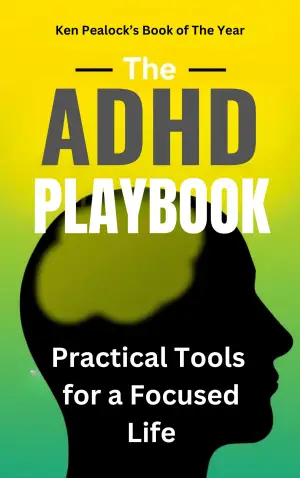Ready Player One: A Journey into Digital Dreams and Real-World Reflections
When I first picked up Ready Player One by Ernest Cline, I was drawn in by the nostalgia of the ’80s pop culture references and the allure of a virtual paradise, but it quickly became a much deeper experience than I anticipated. This novel has a way of hooking you, not just with its exhilarating quest for a digital egg, but by reflecting on our own relationship with technology and real life. It’s a ride through a dystopian future that’s both thrilling and deeply thought-provoking, prompting me to contemplate our current world—a time where online escapism often trumps real-life interactions.
Set in the bleak year of 2044, Cline introduces us to Wade Watts, a teenager navigating a world ravaged by environmental decay, where the virtual oasis known as the Oasis offers a stark contrast to his grim reality. The Oasis is a sanctuary for Wade and millions like him, a digital realm where they can learn, work, and escape the harshness of their physical existence. But this virtual haven comes with its complexities, majorly stemming from the hunt for the Easter egg left behind by the Oasis creator, James Halliday. What unfolds is a race against other "gunters" and the malevolent corporation IOI for control of the Oasis—an exciting plot that keeps your heart racing from start to finish.
Cline’s writing style is incredibly engaging; he effortlessly balances the thrill of the quest with poignant reflections on isolation, identity, and the human condition. The narrative presents a striking juxtaposition between the vibrant digital world and the desolate reality outside, prompting readers to ponder: is the extended retreat into the virtual realm a salvation or a curse? As I immersed myself within Wade’s journey, I couldn’t help but reflect on my own tendencies towards digital escapism. His struggles with self-worth and the desire for genuine connection felt achingly relatable, evoking a bittersweet sense of empathy for him.
The characters, especially Wade, are beautifully fleshed out. His duality—an experienced player in a fantastical realm and a socially awkward teen in the real world—mirrored parts of my own experiences growing up, where I often found solace in video games when faced with real-life struggles. Wade’s insecurity and his complicated relationship with the world resonated deeply with me, serving as a stark reminder that our digital personas can often hide our deepest vulnerabilities.
Cline’s masterful weaving of nostalgic references—from films to games—serves not just as a backdrop but as a loving homage to the medium that shaped our childhoods. It invites readers to reflect on the creators behind our favorite childhood classics, showcasing that while virtual adventures are exhilarating, they carry an intrinsic value tied to human creativity and effort.
As I turned the last page, I felt not only entertained but also contemplative about the implications of our evolving relationship with technology. Ready Player One stands as a spirited invitation to engage with both our virtual and physical worlds with equal passion. I wholeheartedly recommend this novel to anyone who has ever yearned for adventure, reflection, or a reminder that, in the end, the most profound stories lie not in pixels, but in the connections we forge with one another. Whether you’re a gamer, a nostalgic ’80s enthusiast, or simply in need of a story that resonates deeply, this book is destined for your reading list.
In a world increasingly dominated by screens, Cline reminds us to find balance, embracing the richness of both our virtual and real lives. For me, Ready Player One isn’t just a novel—it’s a journey that will linger long in my thoughts as I step away from my own screen.
Discover more about Ready Player One (Ready Player One, #1) on GoodReads >>













